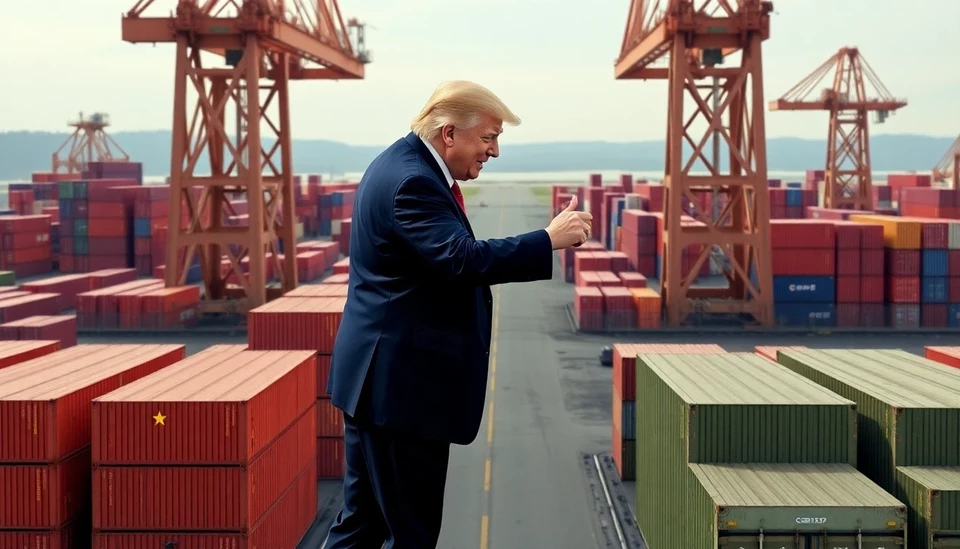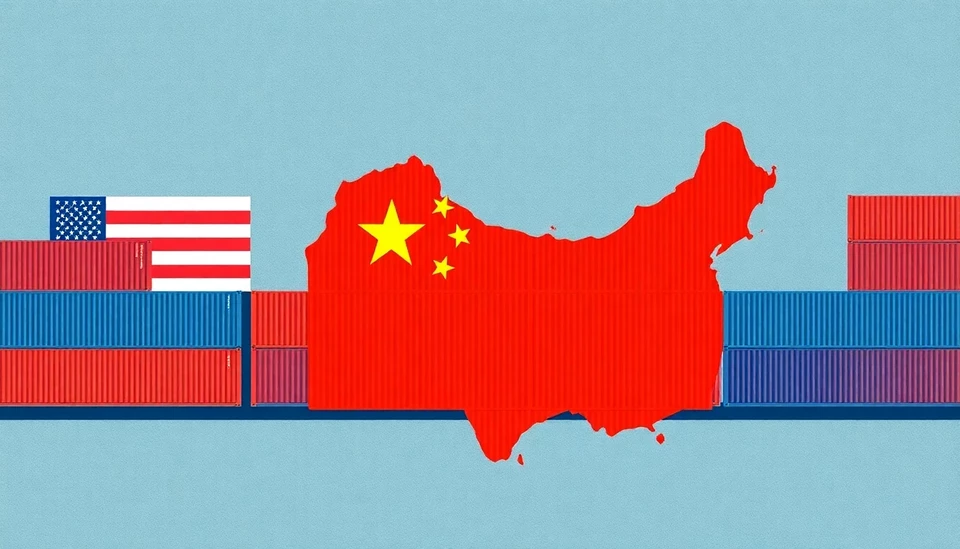
The ongoing trade conflict between the United States and China is facing new challenges as former President Donald Trump reemerges as a key player. With Trump suggesting a renewed focus on tariffs, speculation abounds regarding how Beijing might respond should he reclaim the presidency. Analysts are keenly observing the political and economic implications of this potential shift, which could dramatically reshape Sino-American relations.
In recent remarks, Trump hinted towards a strategy that could involve imposing further tariffs on Chinese imports. His stance, echoing the aggressive trade policies of his previous administration, suggests that he might revive some of the contentious strategies that contributed to the trade war initiated in 2018. This has raised alarms among economists and policymakers alike, as tensions still simmer between the two largest economies in the world.
As President Joe Biden's administration pressures China on various fronts—ranging from intellectual property theft to trade imbalances—there is mounting uncertainty regarding how Beijing will navigate this treacherous terrain if Trump's tariff strategy gains traction in the political arena. Such a development could place significant strain on an already fragile economic recovery in the wake of the pandemic.
According to insiders and analysts, the Chinese government might adopt a wait-and-see approach while preparing countermeasures. Historically, China has been reluctant to engage in economic retaliation for fear of exacerbating the rift, and many experts believe this pattern is likely to continue. However, there are signs that as the U.S. internal political landscape shifts, Beijing could conjure stronger responses to U.S. tariffs, including potential subsidy expansions for domestic industries or initiatives to diversify trade partners.
Moreover, the ramifications of Trump’s return to tariff policies could ripple through global supply chains. In the past, tariffs imposed during his presidency led to significant adjustments for multinational corporations, with many seeking to minimize costs by relocating production facilities or diversifying their supply chains beyond China. Should tariffs resurface, American firms could reevaluate their business strategies, potentially aligning more with countries outside of China to mitigate risks associated with trade disruptions.
Policymakers and businesses alike are keenly aware of the stakes involved. The U.S.-China trade war has already imposed lasting scars on both economies, emphasizing how a resumption of hostilities could not only affect bilateral trade but also have wider implications across the global economy. Notably, consumer prices in the U.S. could see upward pressure should tariffs once again be enacted, leading to more expensive goods for American consumers.
In conclusion, as the political landscape evolves and Trump’s intentions regarding tariffs come into sharper focus, the international community watches closely. The potential for renewed tensions could usher in a new era of trade relations characterized by volatility and uncertainty that may solidify America's priorities in a post-pandemic world while challenging China's economic aspirations.
As these developments unfold, keeping an eye on the evolving strategies from both Washington and Beijing will be crucial for understanding the long-term implications for global trade and economic stability.
#USTradeWar #ChinaTrade #TrumpTariffs #GlobalEconomy #BidenAdministration #EconomicPolicy #TradeRelations
Author: Laura Mitchell

